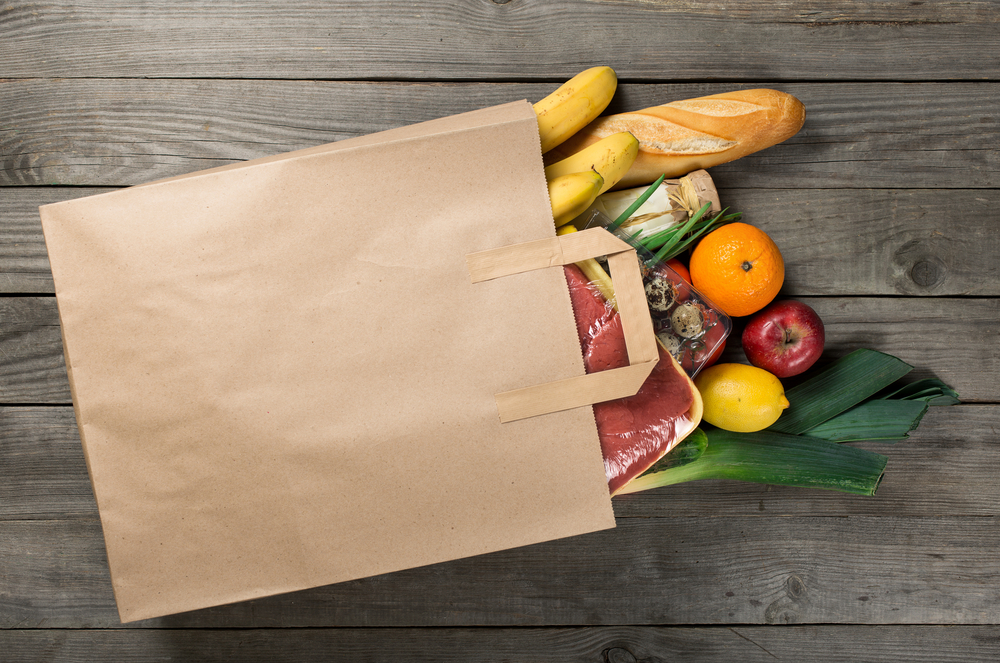
Image Credit: KucherAV/Shutterstock.com
Plastic pollution is one of the planet’s most pressing environmental concerns. Plastics became popular in the 1950s as a culture of convenience and disposable lifestyles took hold. However, recent decades have seen a major change in attitude as the world becomes more conscious of plastic pollution’s environmental impact. Around the world, governments and agencies are implementing various strategies to reduce our reliance on plastics, with one common approach being to reduce the use of disposable plastic bags in supermarkets.
This has driven the need for innovative alternative bags that are both environmentally friendly and durable. While alternatives such as fabric and reusable plastic bags have long been available, there has been space to create a more sustainable product with outstanding reusability. AB Group Packaging has partnered with BillerudKorsnäs to launch a paper bag constructed from FibreForm®. The bag will likely help to reduce plastic use across Europe.
Video Credit: BillerudKorsnäs AB/Shutterstock.com
The Need to Reduce Plastic Use
Plastic pollution is a concern for all countries, with some regions still retaining considerably low recycling rates. The National Geographic report has found that while efforts are being made to move away from plastic use, its production continues to ramp up, with half of all plastics ever manufactured being created within the last 15 years. Statistics reveal the exponential growth of plastic production since its boom in the 1950s, with roughly 2.3 million tons of plastics being produced in 1950 and around 448 million tons being produced in 2015.
Plastic use has a significant impact on the environment. Around 8 million tons of plastic waste enters the ocean each year. These plastic items harm marine wildlife, causing death and injury. It is estimated that as many as 700 species of birds and fish, including those that are endangered, have been impacted by plastic pollution.
Microplastic Threats
The sun, sea, and wind begin to break down these plastics, a process that can take hundreds of years, and small particles break off and contaminate the water. These ‘microplastics’ have been found in every corner of the globe and have infiltrated our drinking water, are in the seafood we eat and have even been found floating through the air.
Microplastics pose a significant threat to human health, with some experts considering them to be the ‘number one threat’ to humankind. Without knowing it, humans are exposed to microplastics in the environment - they ingest them, inhale them, and come into physical contact with them. Studies have shown that exposure to microplastics is toxic, with oxidative stress and inflammation of the body occurring in response to some form of contact with environmental microplastics.
Several diseases have been linked to microplastic exposure, with even low toxicity particles being shown to induce disease in susceptible populations. A growing body of research is supporting the link between microplastic exposure and a range of human cancers.
Given the significant negative impact of plastic pollution on the environment and human health, we must come up with effective solutions that will reduce the use of single-use plastics. Replacing single-use plastic bags with reusable paper bags can significantly impact the universal need for shopping bags.
What are the Effects of Nanoplastics and Microplastics on our Environment?
Reusable Paper Bags by AB Group Packaging and BillerudKorsnäs
BillerudKorsnäs produces one of the world’s most robust kraft papers called FibreForm®. The company, specializing in creating sustainable packaging materials and solutions, has developed fiber materials for paper that are strong enough to create a paper bag that can be used repeatedly to carry substantial weights.
AB Group Packaging teamed up with the company to produce reusable paper bags that will potentially make shopping trips more eco-friendly, reducing plastic waste and lowering the environmental and health impacts associated with plastic pollution.
Tests have demonstrated the product’s ability to be used repeatedly, with trials showing that one single bag can withstand the equivalent of 860 lifts carrying 16 kg. Its makers are confident that it can be used reliably in all weather, with heavy shopping loads, time and time again.
The bags will first emerge in the United Kingdom, where reusable plastic bags are popular and paper bags are often seen as less environmentally friendly. With manufacturing locations in Ireland, Spain, and the UK, AB Group Packaging will likely introduce the bags into other European regions following this.
The Future of Reusable Bags
It is hoped that this innovation from AB Group Packaging and BillerudKorsnäs will be a significant step towards plastic reduction and securing a more sustainable future. Researchers hope that this will help to protect the environment and human health from the detrimental impact of plastic pollution.
References and Further Reading
Microplastic pollution ‘number one threat’ to humankind. Thomas Barrett. Environmental Journal Online. Available at: https://environmentjournal.online/articles/microplastic-pollution-number-one-threat-to-humankind/
Prata, J., 2018. Airborne microplastics: Consequences to human health?. Environmental Pollution, 234, pp.115-126. https://www.sciencedirect.com/science/article/abs/pii/S0269749117307686
Prata, J., da Costa, J., Lopes, I., Duarte, A. and Rocha-Santos, T., 2020. Environmental exposure to microplastics: An overview on possible human health effects. Science of The Total Environment, 702, p.134455. https://www.sciencedirect.com/science/article/abs/pii/S0048969719344468
The Reusable Paper Bag, a better choice for the climate. BillerudKorsnäs. https://www.billerudkorsnas.com/press--news/press-releases/2020/the-reusable-paper-bag-a-better-choice-for-the-climate
The world's plastic pollution crisis explained. Laura Parker. National Geographic Available at: https://www.nationalgeographic.com/environment/habitats/plastic-pollution/
Turner, M., Andersen, Z., Baccarelli, A., Diver, W., Gapstur, S., Pope, C., Prada, D., Samet, J., Thurston, G. and Cohen, A., 2020. Outdoor air pollution and cancer: An overview of the current evidence and public health recommendations. CA: A Cancer Journal for Clinicians, 398 (5). https://www.sciencedirect.com/science/article/abs/pii/S0304389420309833
Disclaimer: The views expressed here are those of the author expressed in their private capacity and do not necessarily represent the views of AZoM.com Limited T/A AZoNetwork the owner and operator of this website. This disclaimer forms part of the Terms and conditions of use of this website.